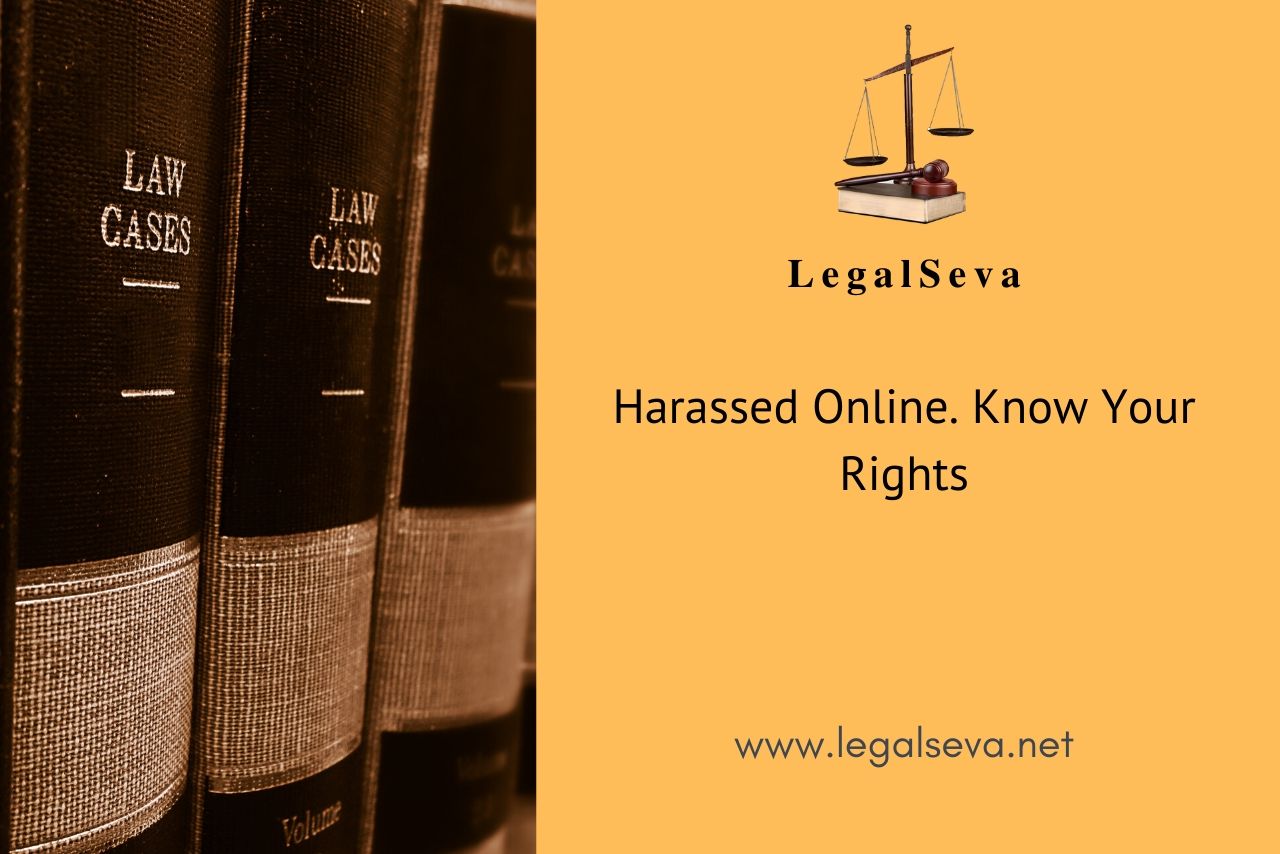Last Updated on June 15, 2024 by Satish Mishra
Introduction
Present day crime is upto such an extent that a person is socially harassed even through social media sites. To prevent such misrepresentation many provisions are made by lawmakers to make a check on it
Even after Supreme Court invalidate section 66-A (Punishment for sending offensive messages through communication service) of Information technology act in 2015.
Recently, a man was held for trolling actor Parvathy on social media after she filed a complaint to a cyber cell in Kochi a day before.
There are many laws criminalizing harassment towards women on social media:
-Sexual harassment: when a person posts ribald content on social media, they are liable under section 354A of Indian penal code and can be punished with one-year imprisonment and fine. The provision also extends to messaging content related to pornography and request for sexual favours against the will of a woman are punishable with three years imprisonment and fine.
With an intention to outrage the modesty of women if a person posts some overtly content on social media, the offence is covered under section 509 of IPC with a punishment of three years and fine.
-Voyeurism: if a person captures an image of women engaging in any private act without her consent then he will be liable for the offence. The provision defines the “private act” of women as a picture of undressed women. Distributing such image to a third party too is considered as an offence under IPC, which gives a minimum punishment of one year which may extend to three years and fine.
Section 66E IT act also provide for Voyeurism. Publishing a visual image of a person in print or electronic form that violates the privacy of another person is held punishable for three years imprisonment or Rs. 2 lakh fine.
-Sexually explicit content: If a person transmitting sexually explicit content in electronic form, he liable under IT act onto his first conviction would result in three years imprisonment along with fine extending to Rs. 10 lakh and upon second conviction, a person would be held for seven years jail term along with a similar fine.
-Online stalking: An attempt to contact a woman to foster her personal interaction despite her clear disinterest and monitoring her through Internet, email or through any other electronic communication is stated as an offence under section 354A of IPC.
– Obscene content on social media: Section 292 of the IPC provides a book, pamphlet, paper, writing, drawing, painting, representation, figure or any other object as obscene if it proves to have lascivious content or appeals to be of prurient interest. Defining obscene content in electronic form, Section 67 IT Act reiterates the IPC provision adding the term “electronic form” to the law.
-Defamation: if a person by visible representations publicises an imputation of a woman with the intention to harm her character. Section 499 IPC would cover, remarks on social media, obscene images or videos posted for public view. Whoever defames a woman online is liable to two years in jail.
-Criminal intimidation: If a woman is being threatened by a person who has the intention to harm her reputation or alarm her, the latter would be punished with two years under Section 503 IPC. Similar to Section 503, another provision mentioned in IPC is Section 507 IPC which punishes a person for two years if the person intimidates or threatens a woman by anonymous communication.
In rare case in further proceeding, a plea has been filled in Delhi high court by a married women with a charge that obscene messages has been flooded in her social media accounts. Women told court that first she started getting abuse and threats on phone for which she lodged complaint later on she get pornographic content and messages on her Facebook profile. For which Justice of High Court issued a notice to Delhi police asking reports by August 9, 2018.
After repeated complaints by women police official finally register a FIR under IT act. Victims were booked after further investigation and phone call records.
What Constitutes Cyber Crime
Cyber Crime can be categorized under Threatening/unwanted calls/SMS, Hacking of Email , Lewd SMS, Facebook (Hacking profile/Comments ) , ATM/Credit Card Fraud, Theft (Mobile), Online Scam (Job/Articles/Lottery), Misc. IPC , Online Transaction , Cheating, Add on OLX/QUIKR, Data Theft, Fake website, Cheating through Email, ATM withdrawal through ATM, Cheating through providing loan, Online Harassment and Threatening and misc..
Types of Cyber Crime-
Hacking, Child Pornography, cyber stalking, credit card fraud, card cloning of ATM/Credit Card, Phishing, Net extortion , virus dissemination , Software piracy , Internet Relay Chat (IRC) crime, Denial of Service Attack, Marked Currency / Defaced Black Currency / Wash-wash / Money Multiplier /Black Dollar Nigerian Advance Fee Fraud Cash Cleaning Money Scams.
Chandigarh Cyber Complaint Email Id- [email protected]
Conclusion
These laws in some way or the other protect the right of an individual to get rid of online exploitation. Information Technology Act and Indian Penal Code protect their various rights and prevent them from getting affected. There are many such cases where a women was harassed on social media, victim got punishment under IPC for a year or more.
For any assistance related to cyber crime complaints or legal advice, please dial 99888-17966 for LegalSeva. This post is written by Priya Singh , a student of BBA LLB (Hons.) ICFAI Dehradun (2016-2021)
Useful Links;
- http://chandigarhpolice.gov.in/cyber-crime.html
- http://www.infosecawareness.in/cyber-crime-cell
- https://blog.ipleaders.in/how-to-register-cyber-crime-complaint-with-cyber-cell-of-police-online-complaint-procedure/
- http://panchkula.haryanapolice.gov.in/template/cybercell.htm
- http://www.sasnagarpolice.in/cyber_crime.php
